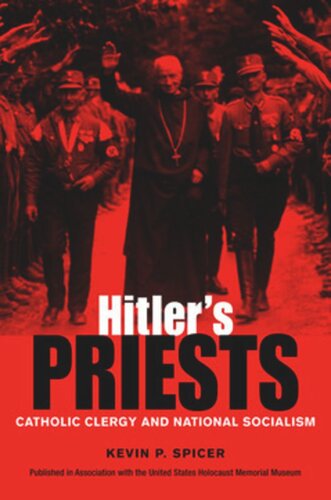

Most ebook files are in PDF format, so you can easily read them using various software such as Foxit Reader or directly on the Google Chrome browser.
Some ebook files are released by publishers in other formats such as .awz, .mobi, .epub, .fb2, etc. You may need to install specific software to read these formats on mobile/PC, such as Calibre.
Please read the tutorial at this link: https://ebookbell.com/faq
We offer FREE conversion to the popular formats you request; however, this may take some time. Therefore, right after payment, please email us, and we will try to provide the service as quickly as possible.
For some exceptional file formats or broken links (if any), please refrain from opening any disputes. Instead, email us first, and we will try to assist within a maximum of 6 hours.
EbookBell Team

0.0
0 reviewsShaken by military defeat and economic depression after War World I, Germans sought to restore their nation's dignity and power. In this context the National Socialist Party, with its promise of a revivified Germany, drew supporters. Among the most zealous were a number of Catholic clergymen known as "brown priests" who volunteered as Nazi propagandists. In this insightful study, Spicer unearths a dark subchapter in Roman Catholic history, introduces the principal clergymen who participated in the Nazi movement, examines their motives, details their advocacy of National Socialism, and explores the consequences of their political activism.
Some brown priests, particularly war veterans, advocated National Socialism because it appealed to their patriotic ardor. Others had less laudatory motives: disaffection with clerical life, conflicts with Church superiors, or ambition for personal power and fame. Whatever their individual motives, they employed their skills as orators, writers, and teachers to proclaim the message of Nazism. Especially during the early 1930s, when the Church forbade membership in the party, these clergymen strove to prove that Catholicism was compatible with National Socialism, thereby justifying their support of Nazi ideology. Father Dr. Philipp Haeuser, a scholar and pastor, went so far as to promote antisemitism while deifying Adolf Hitler. The Führer's antisemitism, Spicer argues, did not deter clergymen such as Haeuser because, although the Church officially rejected the Nazis' extreme racism, Catholic teachings tolerated hostility toward Jews by blaming them for Christ's crucifixion.
While a handful of brown priests enjoyed the forbearance of their bishops, others endured reprimand or even dismissal; a few found new vocations with the Third Reich. After the fall of the Reich, the most visible brown priests faced trial for their part in the crimes of National Socialism, a movement they had once so earnestly supported.
In addition to this intriguing history about clergymen trying to reconcile faith and politics, Spicer provides a master list—verified by extensive research in Church and government archives—of Catholic clergy who publicly supported National Socialism.